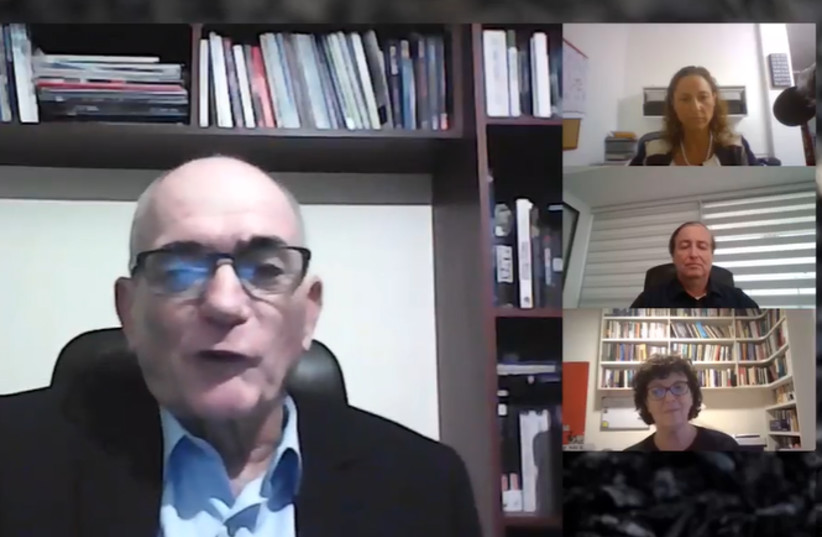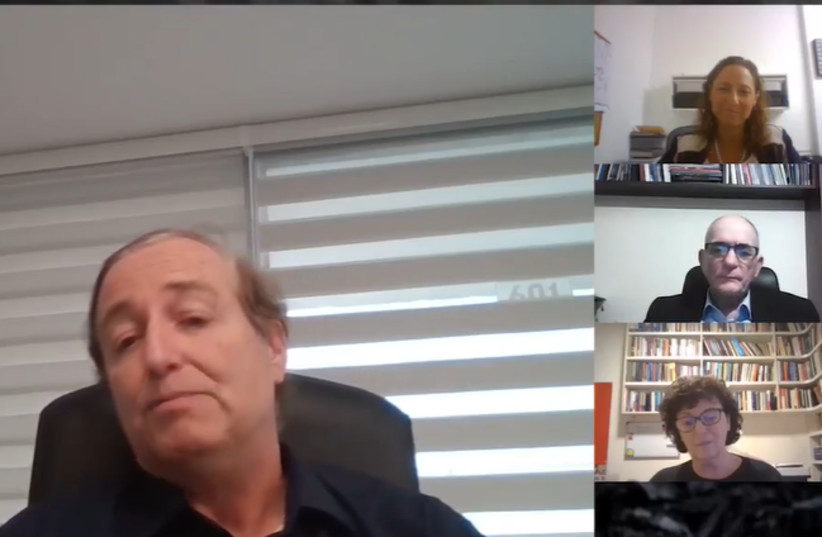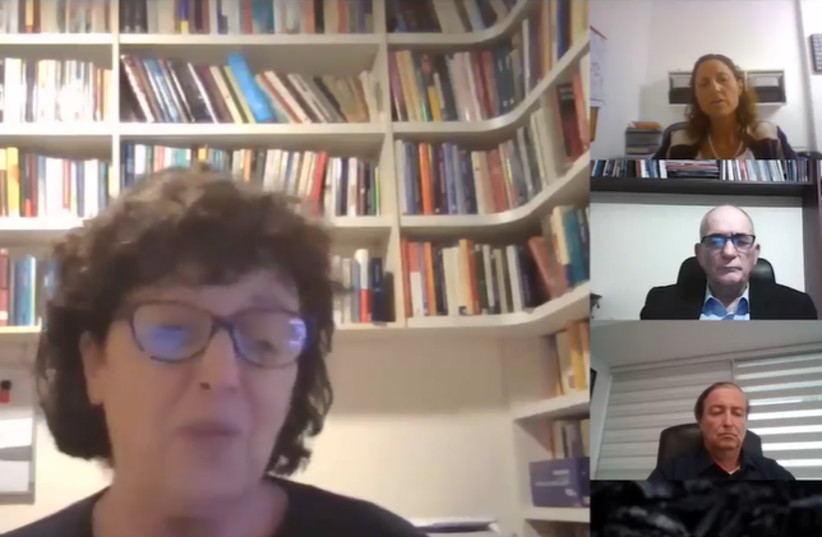What are the vital issues that will confront the State of Israel and the Jewish Diaspora after the Hamas-Israel war ends?
Three distinguished figures from Israeli society – Prof. Tova Hartman, dean of Humanities and Social Sciences at Ono Academic College, Dr. Adi Brender, head of the Research Department at the Bank of Israel, and Brig.-General (Ret.) Yossi Kuperwasser, former head of the IDF Defense Intelligence Analysis Division and Director General of the Strategic Affairs Ministry, who currently serves as the director for regional affairs at the Jerusalem Center for Public Affairs and as a fellow at the Misgav Institute – participated in an online discussion of the issues that Israel and the worldwide Jewish community will be grappling with the day after the war ends.
'Israel is winning'

To kick off the discussion, Kuperwasser laid the groundwork by explaining that Israel is winning the war.
"Every day that goes by, we win more, we take over a greater chunk of land in Gaza and deprive it of Hamas, and we deprive Hamas of the weapons they have," he said.
However, Kuperwasser cautioned that the war would go on for some time because of the formidable underground infrastructure that Hamas has built in Gaza. He said that although the IDF stated at the beginning of the conflict that it would be a long war, the public has not fully assimilated this message.
On the day after the war ends, he said, the question that will confront Israel will be the degree of control that it wishes to exercise over the territory in Gaza.

Security will not be Israel’s only challenge. From an economic perspective, Brender stated that the immediate economic outcome will largely depend on the war’s outcome.
“If the border areas are safe and calm, and if the Israeli public feels safe enough to bring back Palestinian construction workers, then the immediate effects will not be large,” Brender said.
However, if the military and political outcomes differ, the border areas and the construction sector may suffer for some time.
He added that while the economy is gradually recovering each week, the construction sector is still lagging because of the security situation that prohibits Palestinian workers from the West Bank from entering Israel.
In December, close to half of the construction sites in Israel were not operating. He pointed out that importing foreign workers from other countries to solve the problem is not a magic solution. Brender added that the tourism industry has been hard-hit by the war, and the industry usually takes up to a year to recover from conflicts.
'A deep place of resilience'

Hartman discussed the issue of trauma, both among the Israeli population and among Jews in the Diaspora.
“We do not yet really know the extent of the trauma that is in Israel,” Hartman said. “We just say that everybody’s traumatized, but I don’t think anybody has a clue yet to the extent to which people are wounded.”
Hartman suggested that many people, both in Israel and abroad, are suffering from what she called “assumptive trauma.” The outbreak of the war, she explained, destroyed many assumptions of Israelis about the ability of the army and the government to protect them.
Outside of Israel, she continued, Jews were surprised by the unexpected outbreak of antisemitism in their lives.
She noted that one of the primary sources of Israel’s resilience is that national solidarity can transcend societal barriers, pointing out how Israelis who were at odds with each other before the war came together once the country was attacked.
“I think that’s a deep place of resilience and one of the things that is very beautiful about our life here,” Hartman concluded. “I wish we could have that solidarity not only in times of war.”
The online discussion was held as part of the Conversation Corner series sponsored by Ono Academic College in collaboration with the Jerusalem Post. You can visit the conversation corner at www.jpost.com/conversationcorner to learn more and watch future episodes. You can also watch the episodes on The Jerusalem Post Facebook page.